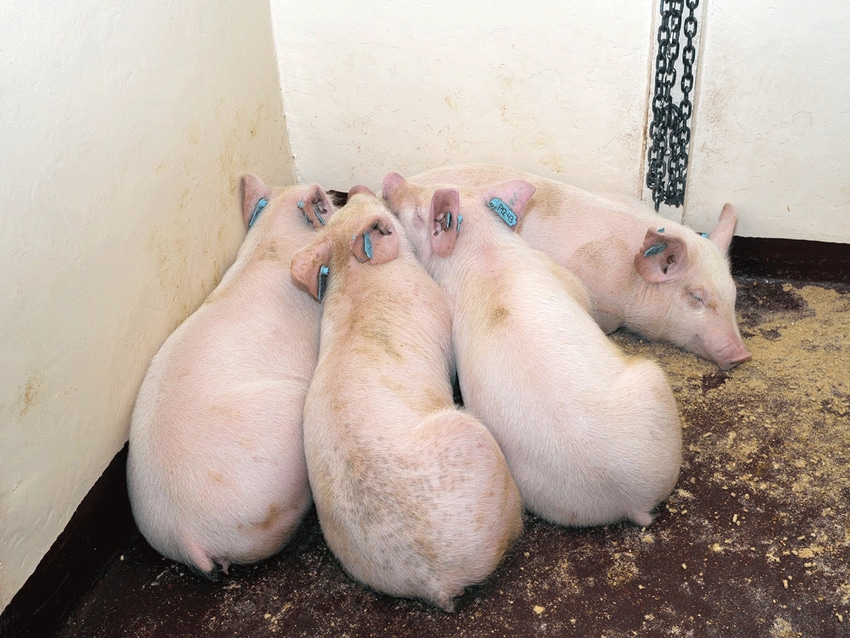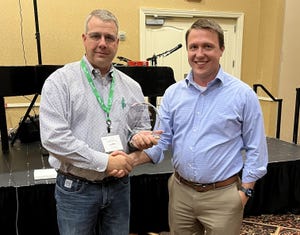In addition to the harmonized approach between countries, OIE says the transparency of new and evolving outbreaks is essential to a good understanding of the epidemiology of the disease and to its control and prevention.
May 28, 2019

Due to the recent upsurge in the spread of African swine fever throughout several regions of the world, the World Organization for Animal Health has called for the establishment of a global initiative to control the disease, in hope of eradicating it entirely, and to reduce its devastating economic impacts on the pork industry. The initiative will be coordinated by the OIE and Food and Agriculture Organization of the United Nations.
During the 87th OIE General Session this week in Paris a report on the global ASF situation was presented to the Assembly. Throughout the second semester of 2018, 25 countries across Europe, Africa and Asia informed the OIE of outbreaks of ASF in their territories.
Given the gravity of the situation with no vaccine against the disease, and following the request of its Member Countries, the OIE is launching the global initiative for the control of ASF. It will use the GF-TADs (Global Framework for the Progressive Control of Transboundary Animal Diseases) mechanism to develop, improve and harmonize partnerships and coordination at national, regional and international levels. The objective is to control the disease, strengthen countries’ prevention and preparation efforts, and minimize the adverse effects on animal health, animal welfare and international trade.
Launched in 2004 by the OIE and FAO, GF-TADs aims to prevent, detect and control transboundary animal diseases, taking into account their regional dimensions. In Europe, regional groups of ASF experts have been in existence under the umbrella of this platform since 2014, and groups have recently been set up in Asia and the Americas.
In the upcoming months, the OIE will establish a work program in collaboration with FAO, taking into consideration the regional initiatives that already exist.
In addition to the harmonized approach between countries, OIE says the transparency of new and evolving outbreaks is essential to a good understanding of the epidemiology of the disease and to its control and prevention. The OIE has reminded all its Member Countries of the importance of reporting the disease via the World Animal Health Information System, as this builds a complete picture of the disease situation. Between April 26 and May 9, 2019, 1,322 outbreaks were ongoing and 157 new notifications of ASF were sent to the OIE via this platform.
Given the global socioeconomic repercussions of ASF, controlling the disease is a high priority for both affected countries and those free of the disease. It is for this reason that that the OIE calls on its Member Countries to ensure that they implement its standards and practices for the effective control of ASF, notably through the implementation of:
Programs for prevention, early detection and intervention, and compensation policies
Biosecurity measures
Pig traceability and movement controls
Effective official monitoring
Management of wild pig populations
Slaughter of animals in accordance with animal welfare rules, and the safe disposal of contaminated animal products
Improvement in collaboration between stakeholders and between countries
Programs of ongoing training and awareness raising
Because of its complex epidemiology, it isn’t possible to control ASF without a coordinated response from the different sectors involved. In addition to Veterinary Services, this includes customs and border control authorities, the pork production industry, universities, forestry management bodies, hunters’ associations, tourist organizations and animal transport organizations. OIE says clear and transparent communication is essential if all these actors are to fully understand their roles and responsibilities in the implementation of the measures required.
Source: OIE, who is solely responsible for the information provided, and wholly owns the information. Informa Business Media and all its subsidiaries are not responsible for any of the content contained in this information asset.
You May Also Like



